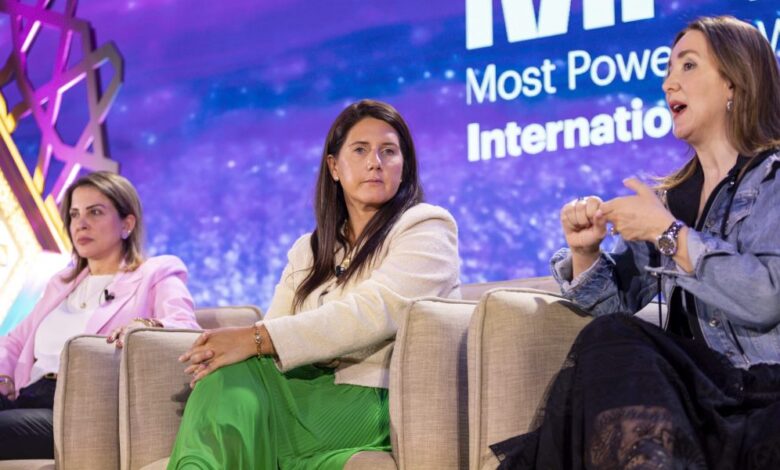Half the world population could be diabetic or insulin resistant by 2050


- Some 1.3 billion people are predicted to have diabetes by the middle of the century. That number hits 5 billion when pre-diabetic people are included. Artificial intelligence now lets people with diabetes know the composition of their food—and their likely blood sugar response to it. Soon, it will allow them to predict which diseases they will face in the future, and take early actions to avoid them.
Artificial intelligence will play an increasingly important role in preventing and treating diseases related to diabetes—especially in regions with large lifestyle-related diabetic populations such as the Middle East—a panel of health industry leaders told Fortune’s Most Powerful Women International conference in Riyadh.
“The numbers are staggering. We are going to have 1.3 billion people [around the globe] with diabetes by 2050 and about three times that number will have pre-diabetes. […] over 5 billion people, or half of the world population, will be insulin resistant,” said Noosheen Hashemi, founder and CEO of January AI, which uses AI to give personalized nutrition and blood sugar level insights.
“The good news is that we have all the tools we need today to help make the world metabolically healthy,” Hashemi added, pointing to AI-enabled technology that allows users to know the amount of protein, fiber, carbs and the like in a food—and their likely blood sugar response to it—just by taking a picture of it.
Olfat Berro, Roche Pharmaceuticals’ Middle East area head, noted that in the future the predictive power of AI, fed with genomic profiling data, will allow much more diseases to be diagnosed and even prevented in people with diabetes.
“We see the repercussions of this epidemic on other health factors, like, for example, on eyesight and the challenges that the patients might face in the future,” Berro said. “And one very important aspect…is how can we use technology to really understand what are the changes, for example, in the eyes that can we can predict what the diseases could be, and at the same time, we can intervene early on.”
To build its blood sugar monitoring app—which does not require a monitor—January AI harvested data from a study of 1,022 diverse participants, which allowed it to build a prediction engine. Hashemi said that with more personalized data from one person—combining genomic data, lifestyle information, and health metrics—AI can now effectively “predict the future of your health.”
The arrival of such AI health monitoring—and the information it provides—could help prevent a future in which half of the world’s population is diabetic or pre-diabetic, suggested Leah Cotterill, Cigna Healthcare’s CEO of Middle East and Africa (outside Saudi Arabia).
“One would hope that, with education and with fabulous AI tools and pharmaceuticals as well, you would be able to sort of dip that curve, rather than seeing that rise to such an extent,” she said.
This story was originally featured on Fortune.com
https://fortune.com/img-assets/wp-content/uploads/2025/05/54535010968_e206942786_o-e1748261133848.jpg?resize=1200,600
2025-05-26 08:30:46




